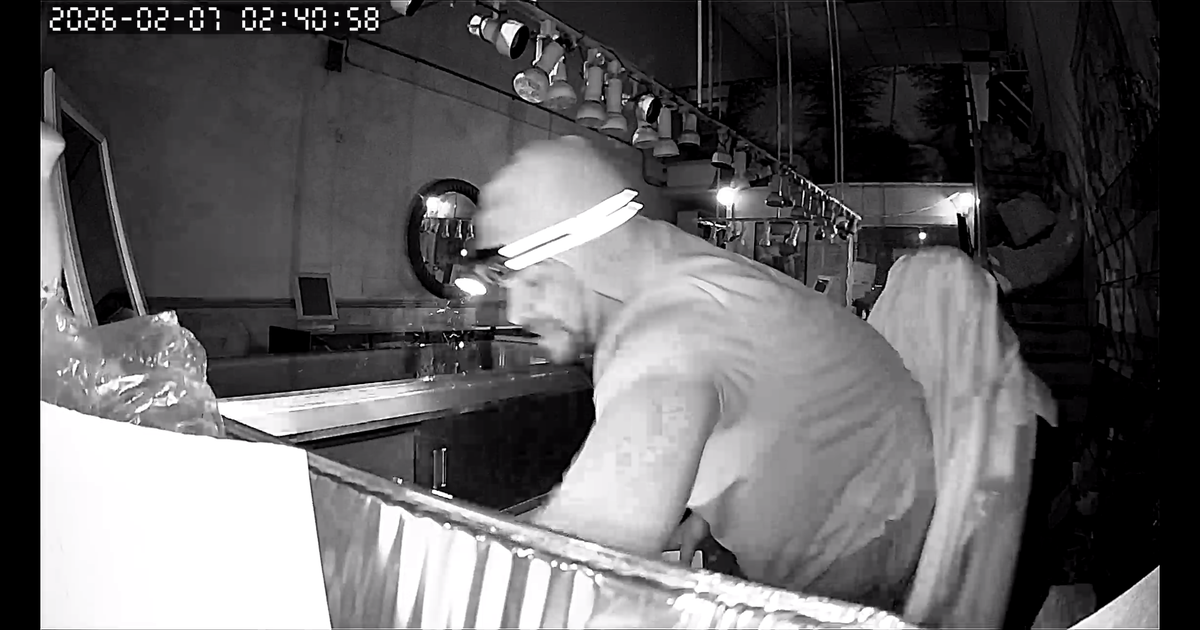Checking In On Your Estate
BOSTON (CBS) - Estate planning is next on our spring cleaning list.
Checking In On Your Estate
If you have done estate planning, when did you do it? Where do you keep the documents? Does your family know where they are?
If you have not done any estate planning, and about half of our listeners haven't done any, Massachusetts has some laws that will do it for you.
Listeners tell me they don't think they need estate planning because they don't have enough money to warrant a will. Or they own everything jointly so why bother with a will.
Do you have kids? Who would you want to care for your kids if you should die? Do you have stuff you want to go to friends or family?
An estate plan helps to distribute your assets upon your death and it can do more. If you have kids, you can name a guardian who will take care of your children if both you and your spouse should die.
All you may need is a simple will, but if your life and finances are complicated then your estate planning should also be complicated.
And if you did do some estate planning a long time ago, find those documents and review them. These documents are very important but should not be kept in a safety deposit box. If something should happen, your family may not have immediate access to them.
Good to leave originals with your attorney and better to keep copies in your home file.
Documents you will need while you are alive are your Power of Attorney and Health Care Proxy. These should be kept at home. The people named in those documents as your proxy should have copies as well.
If you have set up a Living Trust, you want that document readily available and again accessible to the person you have named as your alternate trustee.
As for your will, your executor should know where your will is stored and have access to it. Along with any instructions such as funeral arrangements.
One more thing:
EXECUTIVE SUMMARY FROM THE IRS ON KEEPING TAX RETURNS:
The length of time a document must be retained depends on the action, expense, or even the document records. Generally, records that support an item of income or deductions on a tax return must be retained until the period of limitations for that return runs out.
PERIOD OF LIMITATIONS DEFINED:
The period of limitations is the period of time in which a tax return can be amended to claim a credit or refund, or that the IRS can assess additional tax.
We've listed below the periods of limitations that apply to income tax returns. (Unless otherwise stated, the years refer to the period after the return was filed. Returns filed before the due date are treated as filed on the due date.)
KEEP RETURNS FOR 3 YEARS IF:
If you file a claim for credit or refund* after you file your return; keep records for 3 years from the date you filed your original return or 2 years from the date you paid the tax, whichever is later.
KEEP RETURNS FOR 4 YEARS IF:
It is an employment tax record. Keep all such records for at least 4 years after the date that the tax becomes due or is paid, whichever is later.
KEEP RETURNS FOR 6 YEARS IF:
You do not report income that you should report, and it is more than 25% of the gross income shown on your return.
KEEP RECORDS FOR 7 YEARS IF:
You file a claim for a loss from worthless securities or bad debt deduction;
KEEP RECORDS INDEFINITELY IF:
You have filed a fraudulent return, or
You do not file a return;
PAY SPECIAL ATTENTION TO RECORDS CONNECTED WITH PROPERTY:
Records relating to property must be retained until the period of limitations expires for the year in which you dispose of the property in a taxable disposition.
Those records are needed to figure any depreciation, amortization, or depletion deduction and to figure the gain or loss when you sell or otherwise dispose of the property.
Generally, if property is received in a nontaxable exchange, your basis in that property is the same as the bases of the property you gave up, increased by any money you paid. Records must be retained on the old property, as well as on the new property, until the period of limitations expires for the year in which you dispose of the new property in a taxable disposition.
....................
You can hear Dee Lee's expert financial advice on WBZ NewsRadio 1030 each weekday at 1:55 p.m., 3:55 p.m., and 7:55 p.m.
Subscribe to Dee's Money Matters newsletter here.







